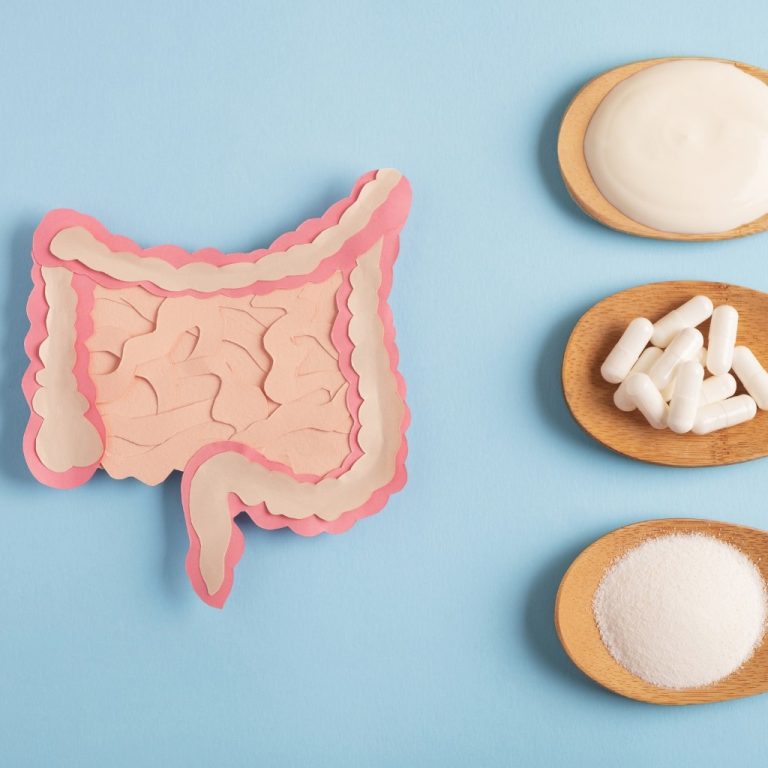The vaginal flora has a significant impact on the health of a woman’s entire body. Many essential bacteria live within the vagina, and they all act as watchdogs and protect the body against pathogenic germs. Many women don’t even know what their vaginas are capable of and how important it is to take care of them. This is probably due to the fact that women only talk to doctors they trust about their “vaginal health”. The vagina is garbed with a thick layer of mucosa that protects it from foreign germs and fungi. To do this, the vagina needs its own “good bacteria”, so-called lactobacilli (lactic acid bacteria) to be precise. These countless small helpers come together to form the vaginal flora. They create a balance within the vagina and protect it against germs trying to enter a woman’s body. But how can a woman keep her vagina healthy? What can she do to keep the vaginal flora balanced? Many different factors influence vaginal health, and we have summarised the most important for you here.
Strengthen your immune system
A strong immune system equals a “strong” vagina. A powerful immune system promotes an intact vaginal flora. There are many different ways to support your immune system, whether it is exercising outdoors, eating healthily or using various food supplements. You just have to find out what works best for you. Click here to find more ways to strengthen your immune system.
A healthy diet
Even though it doesn’t make much sense at first: Our diet has a huge impact on our vaginal health. There really are foods that can disturb the balance of the vagina and therefore enable the colonisation of the vagina with bad bacteria. Healthy fats such as nuts, olive oil, avocado and co. have a positive effect on our defence system. They also support metabolic processes, the development of cell walls and hormone production. Sugar, on the other hand, isn’t very good for the microbiome. It acts as a food source for bad germs in the intestines, which can subsequently reach the vagina. Your mouth can also indicate the state of your vaginal flora. If you’re thirsty, you can assume that your vagina is too. In that sense: make sure you drink enough!
Avoid artificial hormones in your food
Try to completely avoid artificial hormones. Meat and dairy products from the grocery store are usually treated with hormones and contain the artificially created hormone xenoestrogen, which can disturb your natural hormone balance. Try to buy organic foods or go shopping directly at organic farmers or markets.
Intestinal and vaginal microbiota

A plethora of lactobacilli live within the vaginal flora and produce lactic acid, which is essential for maintaining an acidic pH-value. Just like the vagina, the intestines also have their own microbiome with specific bacteria. One common feature between the vagina and the intestines is the partially acidic environment, all thanks to the lactic acid bacteria (lactobacilli) that live there. This environment is the prerequisite for a functional defence system against pathogens.
Correct genital hygiene
Correct genital hygiene is the cornerstone of a healthy vagina. Too little hygiene isn’t healthy, but too much isn’t either. Cleaning the vagina once a day with luke-warm water is more than enough for optimal hygiene. If you still want to use products, make sure you use special hygiene products. These should have a neutral pH and be free of perfumes. Furthermore, it is also recommended to use an extra towel for your genital area and avoid softeners when washing underwear.
Breathable clothing
Tight clothes or underwear out of synthetic materials isn’t healthy for the vaginal flora. These synthetic fibres don’t allow humidity to escape, which leads to waterlogging and the proliferation of pathogens that trigger vaginal infections. The same can be said for tight clothing such as jeans or pants. They inhibit, so to speak, the circulation of air in the genital area, as well as blood flow.
Avoid constant stress
Another significant factor that influences vaginal health is stress. It can lead to an imbalance within the intestinal and vaginal flora and, therefore, increase the risk of infections. It isn’t only important for your body to avoid constant stress, but also for your mental health.
Using probiotics
Just like the intestines, the vagina also needs “good” bacteria to maintain a healthy balance and keep the pH-value stable. There is a proven connection between the vaginal and intestinal flora in our bodies. Intestinal disturbances, such as diarrhoea or constipation, can harm the vagina and its microflora. Probiotics are a good solution to support the intestinal and vaginal flora and avoid a dysbalance. The use of probiotics is most recommended after antibiotic treatment. The intake of probiotics with important, wholesome bacteria helps maintain a healthy microflora within the vagina and intestines.
Protected sex
Not only the vagina is inhabited by bacteria, but the penis too. During sex, the bacteria on the penis can enter the vagina and trigger various diseases. To lower this risk as much as possible, it is always recommended to use a condom if you tend to suffer from vaginal infections. The change form anal to vaginal intercourse can also increase the risk of vaginal infections.



























